Foreword
Canadians can easily be forgiven for thinking that relations between governments and the peoples of the First Nations are really an affair of the federal government. This is certainly true of the critically important aspect of funding, and scholars have devoted many hours to studying that relationship and recommending reforms that could improve that often tense relationship. But there are many other aspects to the intergovernmental relations of Aboriginal bands, and this book focuses on the much less understood dimension of local interactions.
I use the word interactions with particular purpose because the rapport between natural neighbours has not always been harmonious and sometimes has actually defied the very notion of relations. All the same, there are many very successful cases across the land where Indigenous governments and cities, towns, and villages do collaborate, but we are still at a stage, it has to be said, where mistrust reigns.
The thinking on this subject has evolved. Twenty years ago, the Department of Indian Affairs and Northern Development, the Federation of Canadian Municipalities, and the Indian Taxation Advisory Board launched a Centre for Excellence in MunicipalAboriginal Relations. Its mission was to promote effective municipalAboriginal relations based on the principles of mutual recognition, respect, sharing, and mutual responsibility, and it set out to document actual agreements and practices. Out of that emerged a Centre for MunicipalAboriginal Relations (CMAR) in 2001 to focus on solutions. It spawned a MunicipalAboriginal Adjacent Community Cooperation Project committee to conduct further research, and it identified a number of splendid examples of collaboration in many parts of the country.
A small program was then put together in 2011 by the Federation of Canadian Municipalities and the Department of Aboriginal Affairs and Northern Development Canada called the First NationsMunicipal Community Infrastructure Partnership Program (CIPP). The programs mission was not to provide funding, but instead to offer tools and resources to facilitate the interchange between the communities. The ambition was that these resources would, in turn, lead to time- and money-saving partnerships focused on infrastructure. The program targeted hard services such as potable water provision, fire protection, landfill usage, and both wastewater and solid waste collection. It also included soft services such as policing, inspections, parks and community building maintenance, and even libraries.
The program was designed because there was a recognition that the communities where collaboration was acutely needed were typically small, and often very remote. There was also a recognition that relationships had been strained and that political differences were sometimes a real obstacle. The program has offered new approaches where needed, particularly where there was a lack of capacity on both sides to address urgent issues. The program has been a success, with more than thirty agreements signed and hundreds of workshops held across the country. It was recently one of the winners of the Institute of Public Administration of CanadaDeloitte Leadership Award.
The CIPP directors recognize that there are real issues that need to be overcome. Legislative challenges often make collaboration difficult as some questions fall under provincially controlled municipal acts and others fall under federal law. Priorities are often modified as a result of political changes, or because communities on either side do not have the capacity to imagine, negotiate, and then deal with the inevitable irritants that come out of any arrangements. Challenges aside, there is ample room to be optimistic that local collaboration can indeed be a key to better, faster development.
In this welcomed book, Christopher Alcantara and Jen Nelles probe a promising area of policy. Using deeply researched case studies, they project a new theory of what it takes to make these arrangements work. Better still, they give indications as to how mere arrangements can actually blossom into mutually reinforcing partnerships. It is an auspicious route that is eminently deserving of attention.
The Institute of Public Administration of Canada sponsors this series to shed light on new theories, new understandings, and new knowledge. I find great reward when researchers dig their spades at the intersection of different lines of inquiry. In this case, municipal management and the management of Indigenous communities come to life. The research is innovative and rich with insight, and it yields a useful framework. It fits perfectly with the mission of the series to support books on municipal affairs, and it also points the way to the future. There is a whole world of Aboriginal public management that needs to be explored, documented, and understood. In this field, this book is an important milestone.
Patrice Dutil, PhD

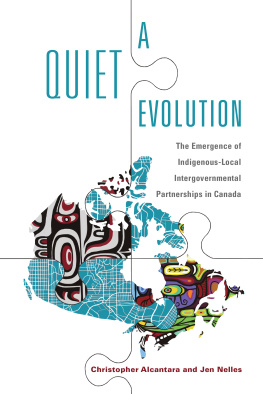

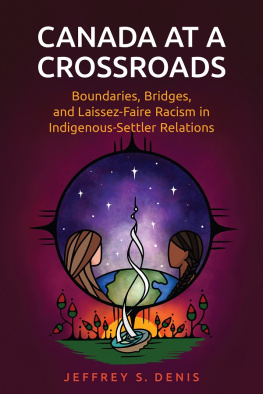

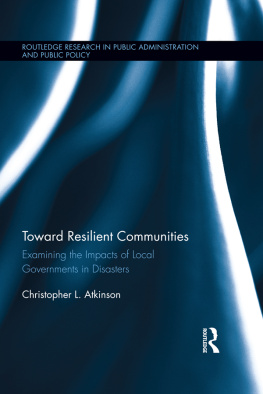

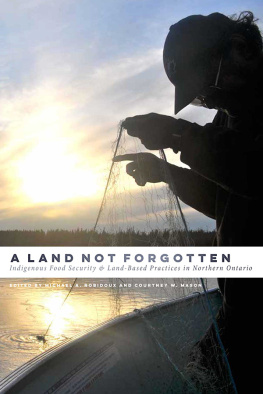


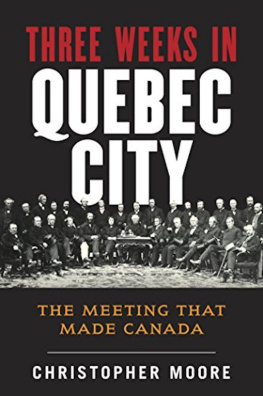
 Printed on acid-free, 100% post-consumer recycled paper with vegetable-based inks.
Printed on acid-free, 100% post-consumer recycled paper with vegetable-based inks.
